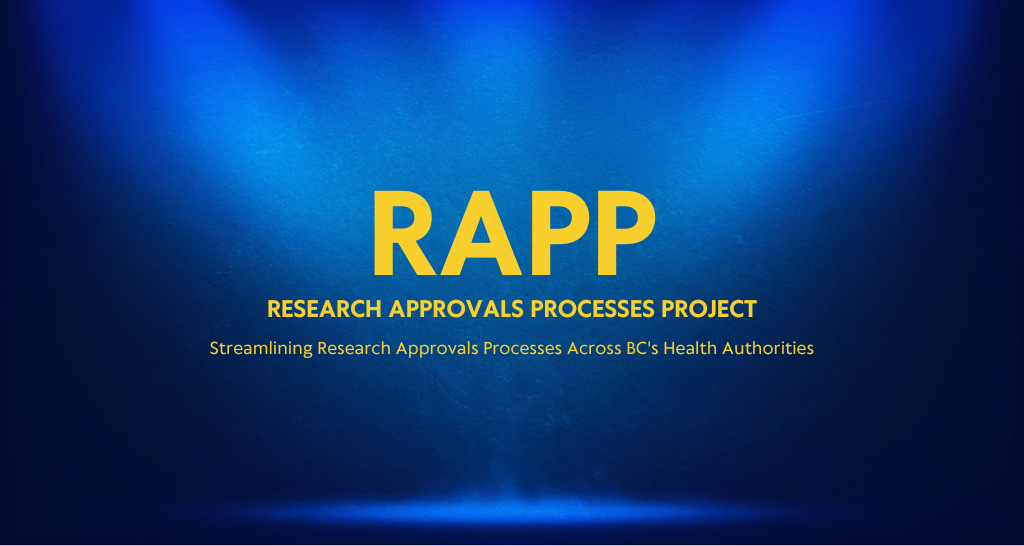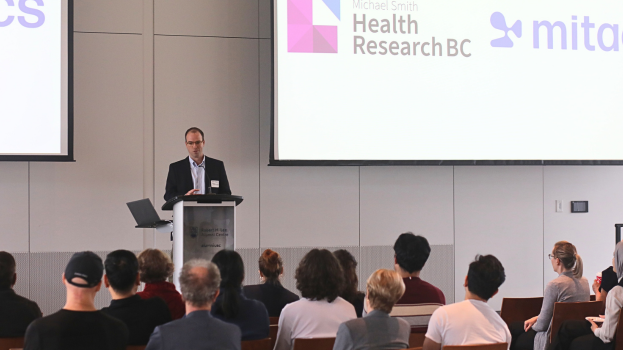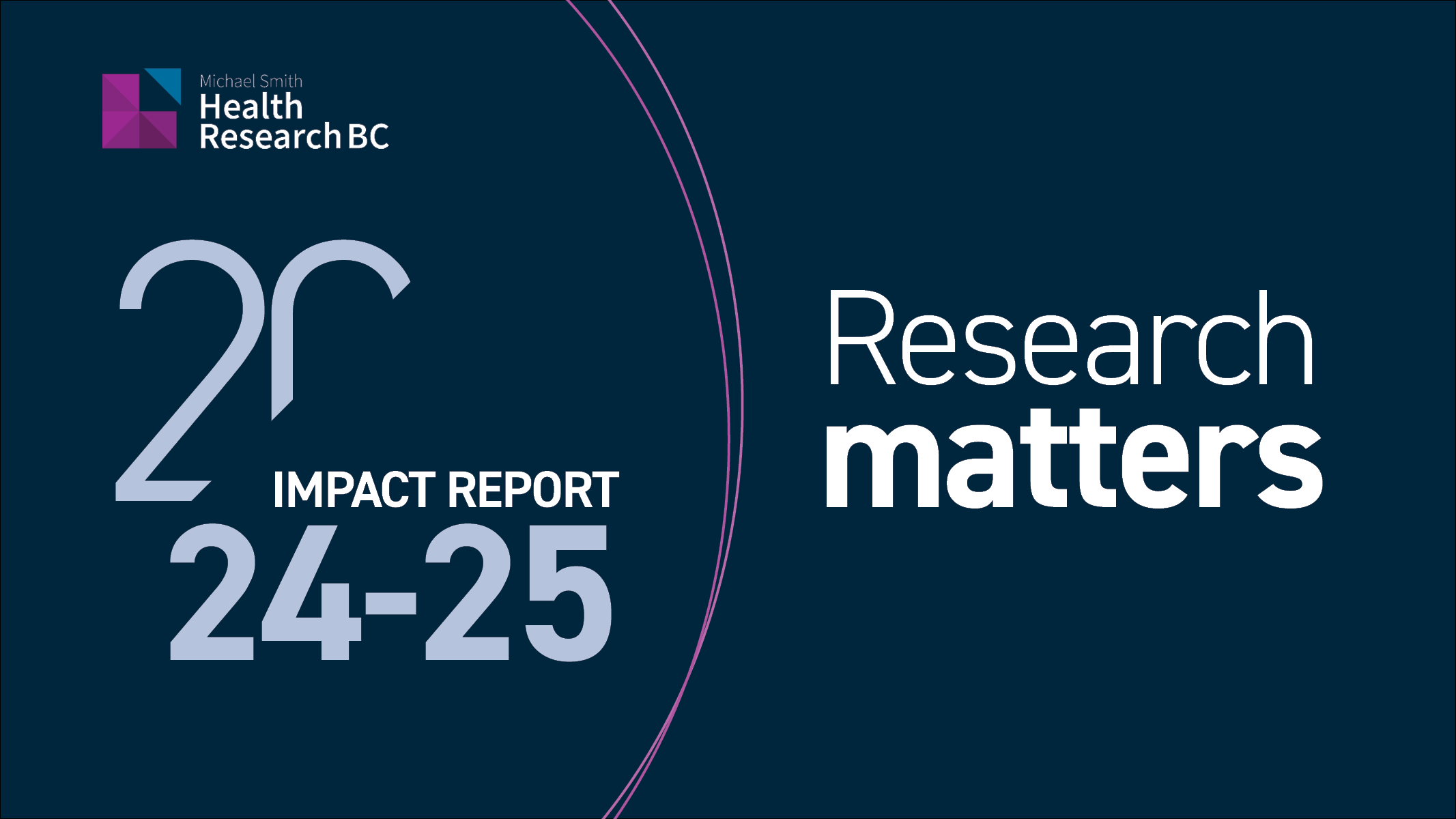Research Approvals Processes Project completes process mapping
24 July 2024

The Research Approvals Processes Project (RAPP) has completed process mapping of the current state for privacy and operational streams of the research approval processes for all health authorities (for more on process mapping, see our March 2024 update). It is now conducting “personas and pain points” workshops for these areas. In the context of research approvals, “personas” refer to the roles and responsibilities of those that work with an application as it moves through the system; while “pain points” refer to the issues a persona may run into.
The approval path for a given research project intersects with many different personas. The particulars of these personas – the job title, job description, and responsibilities – are distinct for each health authority. Understanding distinctions between health authorities, and understanding the perspectives, functions, and pain points of these roles helps to form a nuanced view of the processes.
Equipped with insights from workshops, process maps and other information gathering, the health authorities and RAPP team, with advice from researchers, will be able to further identify best practices, areas for improvement and prepare for future state modelling.
Researcher engagement
The Research Approvals Processes Project (RAPP) is moving forward with researcher engagement. British Columbia’s research-intensive universities as well as health authority research leads Researcher representatives identified by. The role of researchers in RAPP is to provide input and validation from the user/researcher perspective into the current and future state research approval processes; to advise on service creation and/or refinement from the user perspective; and to provide post-implementation feedback (evaluate the effectiveness and impact of changes).
A series of workshops are being offered to these which started with a kick-off workshop that was held on June 24, 2024, the purpose of which was to:
- Provide information on RAPP and next steps for engagement; and
- Exchange views and enrich planning as it relates to the current research approval processes in British Columbia.
At the workshop/meeting, researchers shared initial thoughts on the strengths of the current research approval processes, opportunities for improvements and desired outcomes for future processes.
In the coming months, researchers will be invited to provide detailed feedback and to participate in workshops on Pain Points and Personas, the Future State Conceptual Model, and the Research Approvals Front Counter.
The health authority research leads (also present at the first workshop) spoke to the importance of supporting improvements in organizational research approval processes, which would benefit researchers as well as the patients and health care organizations serving people in communities across the province.
Research ethics model design initiative update
Ministry of Health invited Michael Smith Health Research BC (Health Research BC) to explore the establishment of a provincial health authority research ethics board service. Health Research BC, with the support of external consulting firm, Accenture, has since initiated an 18-week project to provide Ministry of Health with a service model design that takes into consideration people, process, and technology, along with a roadmap for implementation. Currently in phase one of three, the project team is engaging in consultation with research ethics boards across the province to gain a stronger understanding of current practices and future opportunities. For more information, visit project page.





